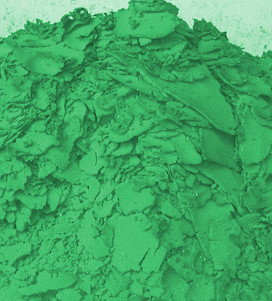Sludge seen in new light
 A waste product, disposed of as landfill in the past, has been unearthed as a powerful fertiliser.
A waste product, disposed of as landfill in the past, has been unearthed as a powerful fertiliser.
Research undertaken by Seqwater Environmental Coordinator Simon Clements has revealed ‘alum sludge’ to be a useful soil additive, offering significant economic and environmental benefits.
‘Alum sludge’ is a by-product from the drinking water treatment process. It is obtained when aluminium salts are used as a chemical coagulant to purify drinking water.
When added to water, aluminium salts attract and bind with extremely small contaminants and particles of mud and dirt in the water to form large particles which can be removed by filtration.
Once removed, ‘alum sludge’ is transported to the waste section of Seqwater’s treatment plants, excavated and stockpiled as an onsite landfill.
As a former water treatment plant operator, Mr Clements, says he has seen first-hand the large amounts of alum sludge being discarded as landfill and wanted to investigate reuse opportunities.
Knowing that alum sludge was rich in nutrients that could be reclaimed as a fertilizer, Mr Clements researched the Phytotoxicity effects of alum sludge on plant growth.
“The literature review showed a big research gap on the effects of alum sludge on different plants and vegetation,” Mr Clements said.
“It took about 18 months’ worth of planning to bring the research project to fruition to prove that alum could be used as a soil additive to improve plant growth.”
The project, carried out at Seqwater’s North Pine Water Treatment Plant, involved blending different amounts of alum sludge with organic material and documenting plant growth.
“The results were promising,” Mr Clements said.
“The plants that were fertilized with 100 per cent alum sludge showed a 500 to 600 per cent increase in growth compared to the plants that grew in the existing soil which increased in size by only 50 to 100 percent.”
As a proven soil additive, Mr Clements said the alum sludge now offered significant resource savings and business opportunities for the water industry as well as environmental benefits.
“Alum sludge's excellent moisture retention capabilities make it a particularly useful soil additive in drought-affected areas,” Mr Clements said.
“The next step is finalising my thesis, having it peer reviewed and published in an international journal.
“Hopefully that will fill that research gap worldwide about alum sludge and its beneficial reuse opportunities.
“Then we will then explore ways for Seqwater to market this product as well as sharing these findings to other water supply industries so that they can benefit as well.”







 Print
Print